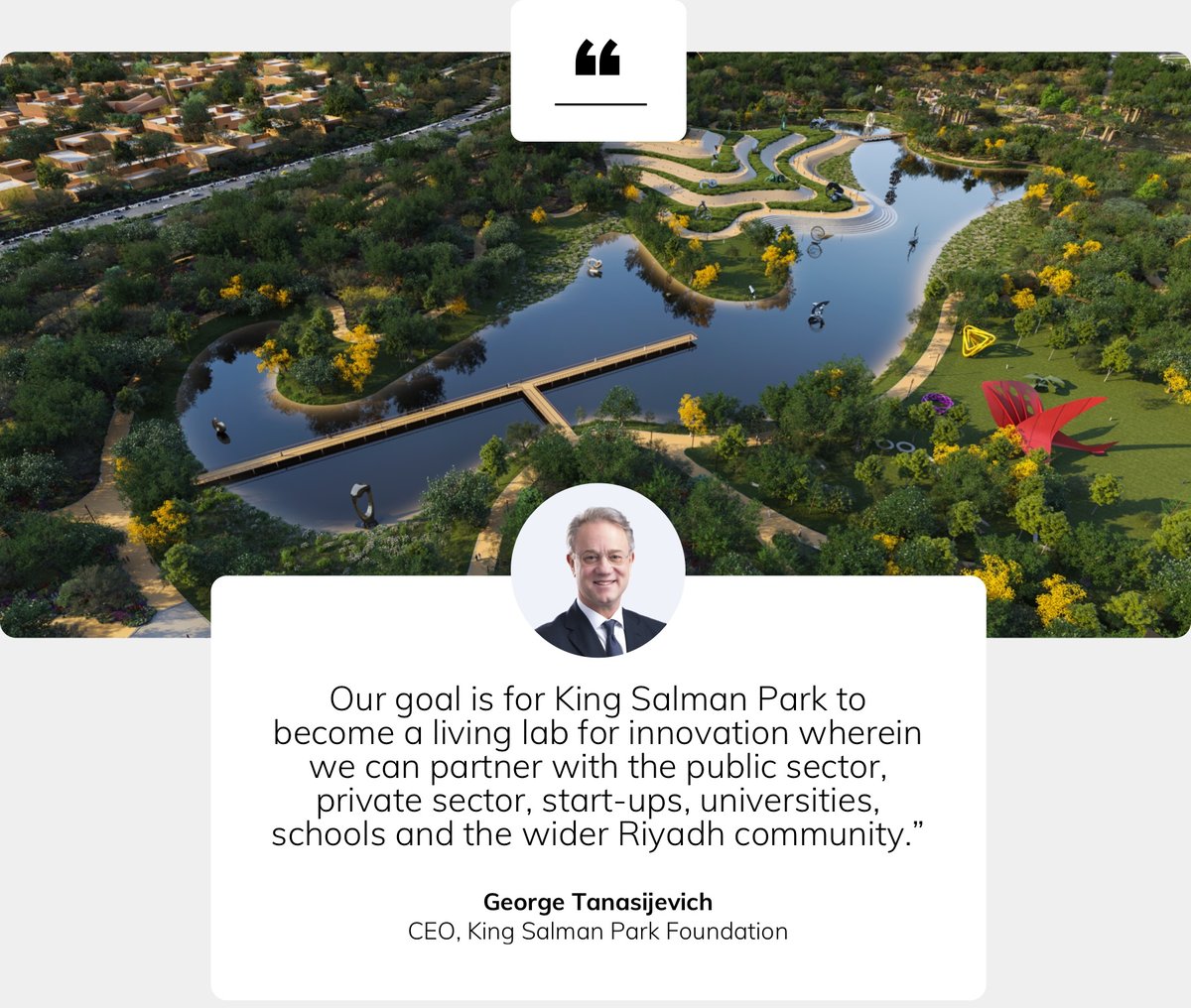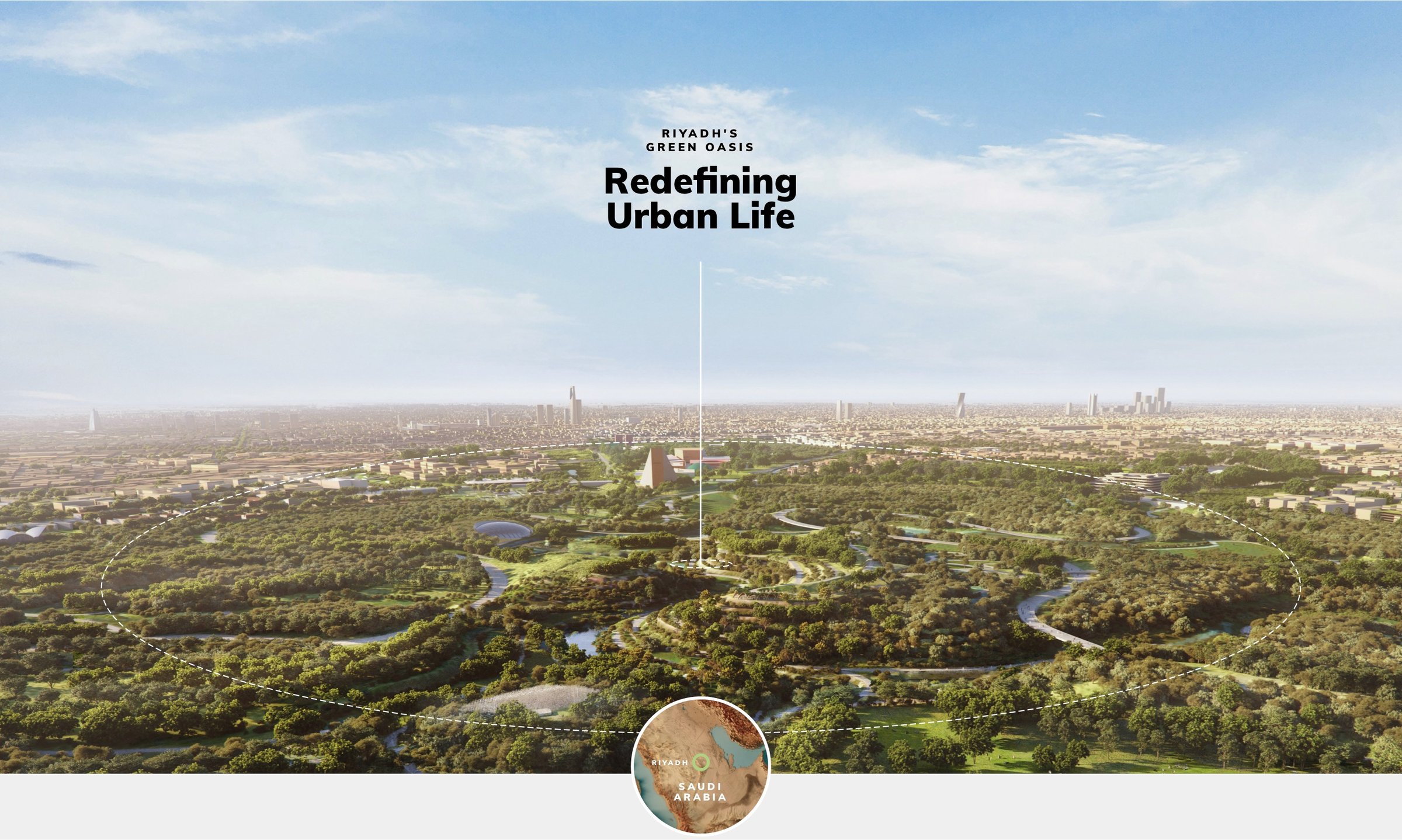
Riyadh's Green Oasis: Redefining Urban Life
Alongside Central Park in New York, Hyde Park in London, Tokyo’s Yoyogi Park and the Summer Palace in Beijing, it might be time to add King Salman Park in Riyadh to the list of the world’s great urban parks.
King Salman Park—one of the world’s largest urban parks - will open in phases over the next three years. This project is bursting into life, transforming 16.7 square kilometers of the capital of the Kingdom of Saudi Arabia into a green oasis and a world-class hub for entertainment and culture.
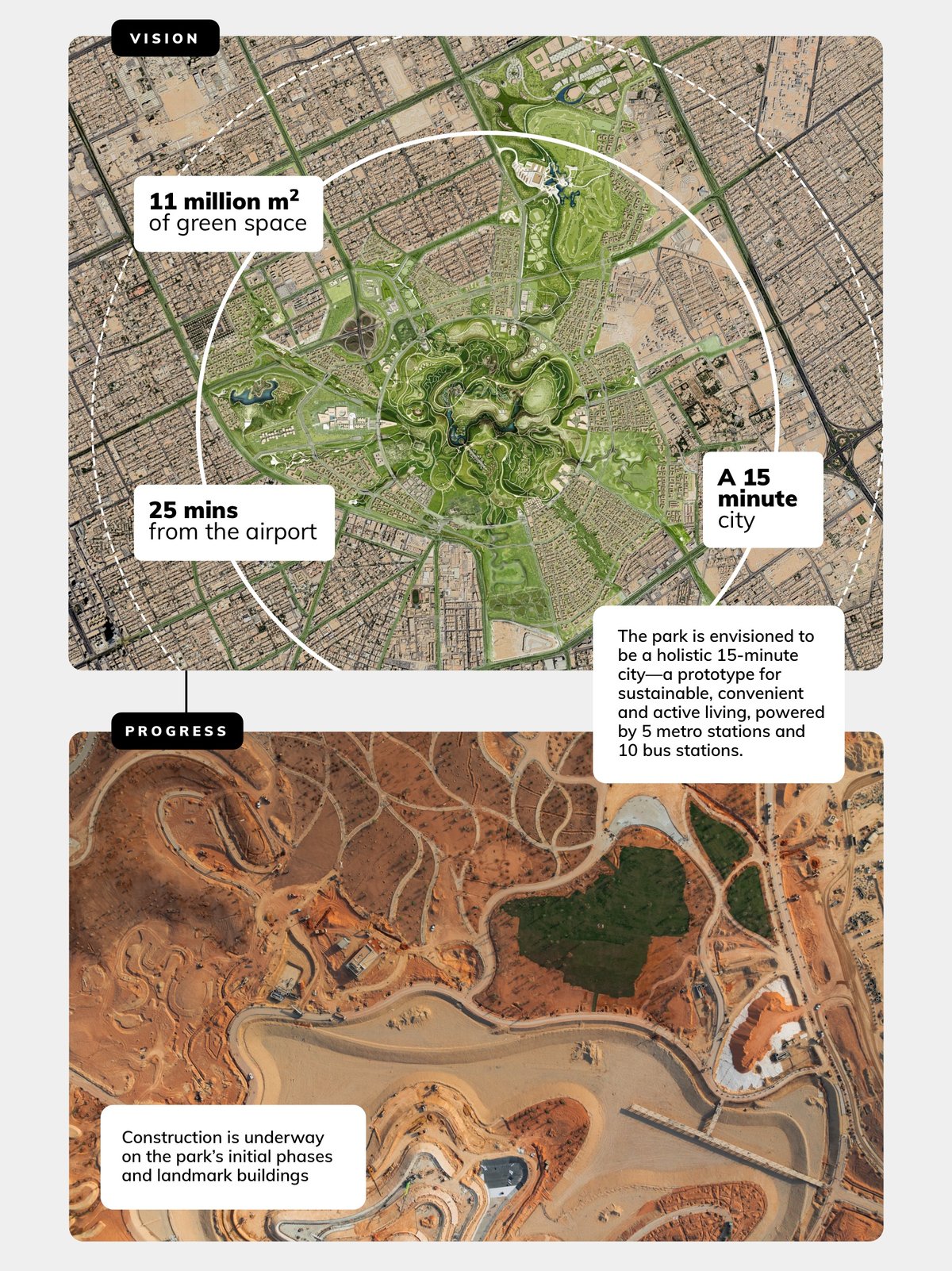
The park will have 11 square kilometers of green space, including 1.1 million trees and 14 million shrubs and perennials. There will be wadis, waterfalls and lofty walkways. The verdant vistas from its apartments and hotels will provide the Middle East with a prime parkside zip code to compare with Manhattan’s Upper East Side or London’s Knightsbridge.

With 27,500 workers on site, construction is underway on the park’s landmark buildings, notably the Royal Art Complex, which includes the Museum of World Cultures and the National Theater, a 2,300-seat performance space.
King Salman Park, which carries the name of the king, is one of the most ambitious initiatives of Saudi Arabia’s Vision 2030, the nation’s roadmap to diversify the economy and create a vibrant and sustainable society where all citizens can thrive. The park will house 96,000 people in 27,000 residential units and provide office space for 30,000 workers, and it is projected to be a destination for 50 million visitors a year. The King Salman Park Foundation, which oversees the park, is chaired by Crown Prince Mohammed Bin Salman.
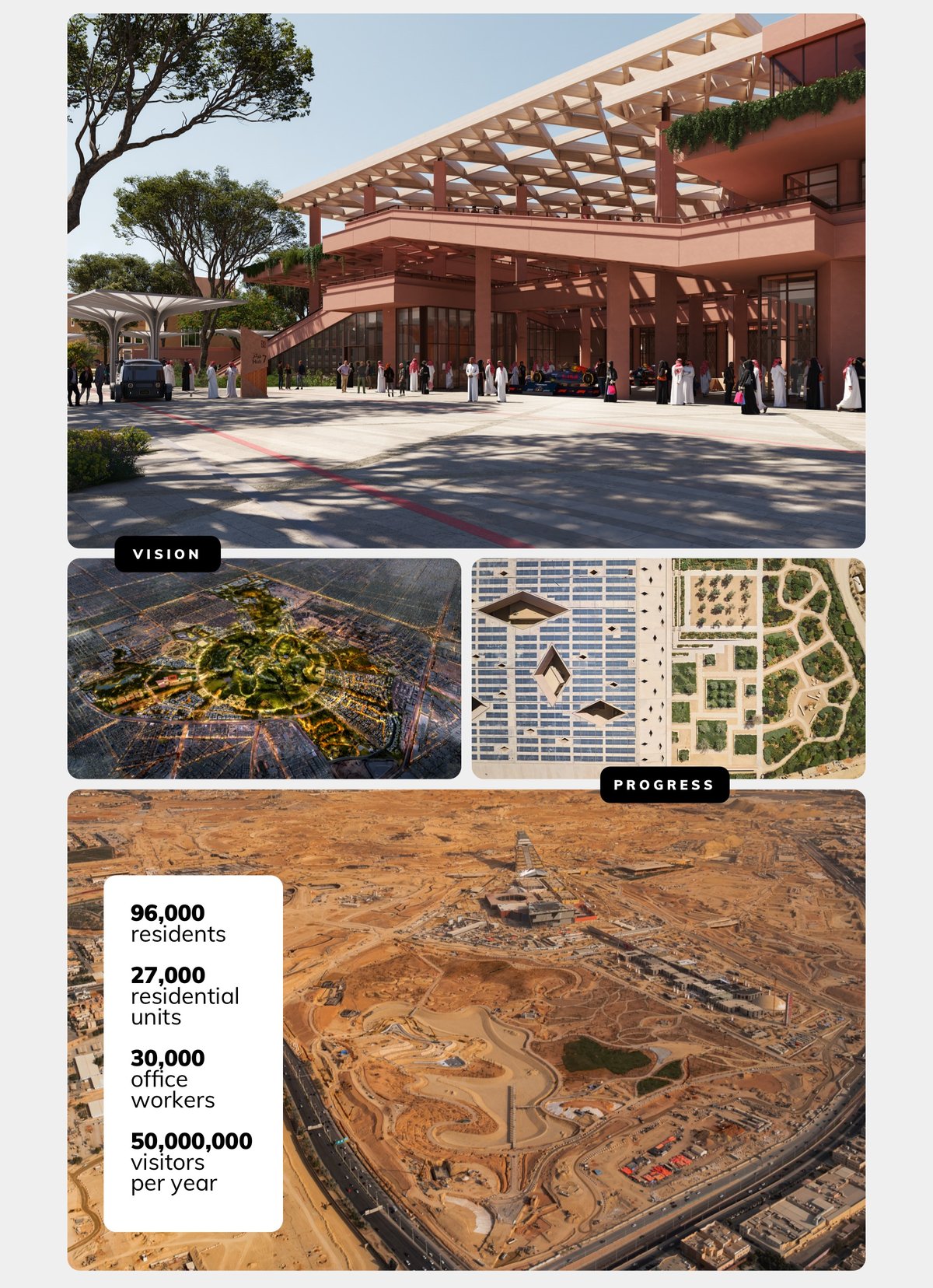
Developers have been quick to see the investment potential. More than 50 developers are in negotiations to participate in the 13 commercial packages on offer, and 11 of these packages are at the active transaction stage.
French hospitality group Accor has partnered with real estate fund Naif Alrajhi Investment to bring Accor’s lifestyle hotel brand TRIBE to King Salman Park. A 250-room hotel, TRIBE Riyadh King Salman Park will offer rooftop dining with park views, wellness amenities and meeting facilities. Accor will also create TRIBE Living Riyadh King Salman Park, a collection of 150 serviced apartments with access to hotel dining and recreation facilities.
King Salman Park’s mixed-use development investment opportunity comprises two districts that combine green areas with residential, office, hospitality, retail and restaurant units. One of these mixed-use districts is situated at the edge of the park, close to Riyadh’s cultural district, while the other offers premium views of the Royal Arts Complex and easy access to King Salman Park’s pedestrian loop walkway.
A second investment opportunity at King Salman Park aims to emulate the success of the L.A. Live complex, which has had a transformational impact on the urban development of downtown Los Angeles. The Riyadh Signature Asset Development investment opportunity will enhance Riyadh’s global reputation as a destination for business, entertainment, recreation and tourism.
At the heart of this development area is one of the world’s five largest MICE (meetings, incentives, conferences, exhibitions) facilities, along with a 20,000-seat multipurpose arena capable of hosting hybrid events. The district will contain upscale residential and retail units, a championship golf course and other recreational amenities, including an equestrian center and riding trails. The city of Riyadh is already a gateway to diverse outdoor leisure activities, including desert safaris and hiking and climbing the “Edge of the World” summit in the Tuwaik mountain range.
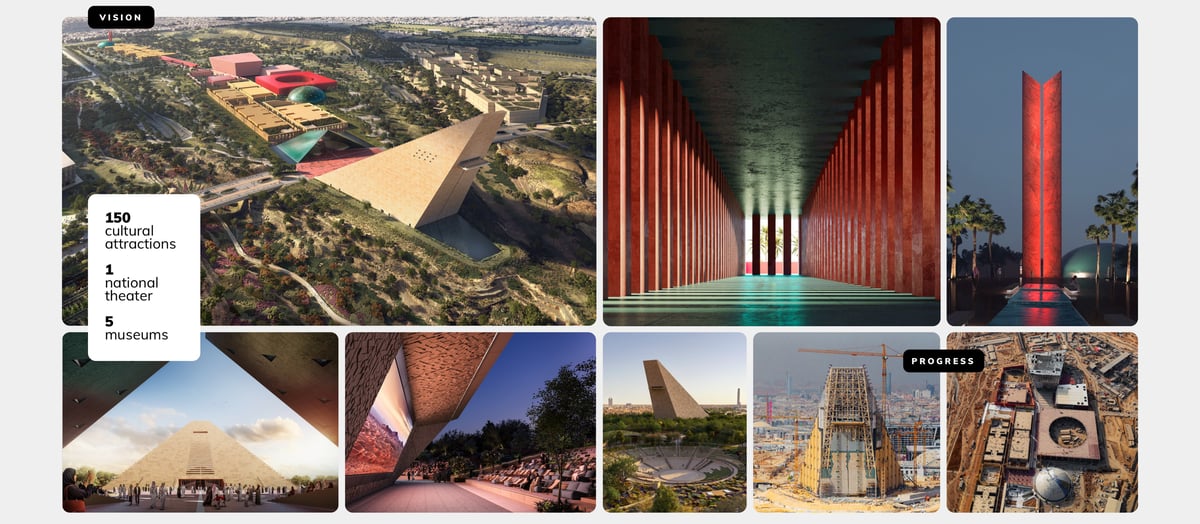
King Salman Park is designed to redefine expectations of quality of life. It is a living lab for urban innovation and is harnessing smart city technologies to benefit the well-being of residents and visitors. Nature, art and technology are being integrated to create a new live-work-play destination that will offer a more sustainable solution to city life and attract green investors. The park, with 150 cultural attractions including an opera house and five museums, is only 25 minutes away from King Khalid International Airport, and well connected to Riyadh’s first-class hospitals and international schools.
This $25 billion venture is expected to be financed largely by Saudi Arabia’s debt market, which has doubled in the last five years to reach 800 billion Saudi riyals ($213 billion). The market, which has become more open to foreign investors, will likely double again in the next five years, according to Mohammed El-Kuwaiz, Chairman of the Board of the Saudi Capital Market Authority. S&P Global, which recently boosted Saudi Arabia’s outlook to positive from stable, has stated that the kingdom is in a comfortable position to offer more bonds, given that its ratio of debt to GDP remains low compared to that of most other countries.
Saudi Arabia’s $1.1 trillion economy is the largest in the Middle East and among the top 20 in the world. The kingdom is projecting GDP growth of 4.7% in 2027. Its non-oil sector, which reached 50% of the economy in 2023, grew by 4.2% in the third quarter of 2024. Saudi Arabia placed third globally in Kearney’s 2024 Emerging Markets Index.
Central Park opened in 1858, while Hyde Park opened to the public back in 1637. In this age of artificial intelligence, as the world focuses on harnessing technology to sustain the future of humanity and the planet, it is time to look at new ways to live in cities in accordance with nature. King Salman Park could be part of the solution.
